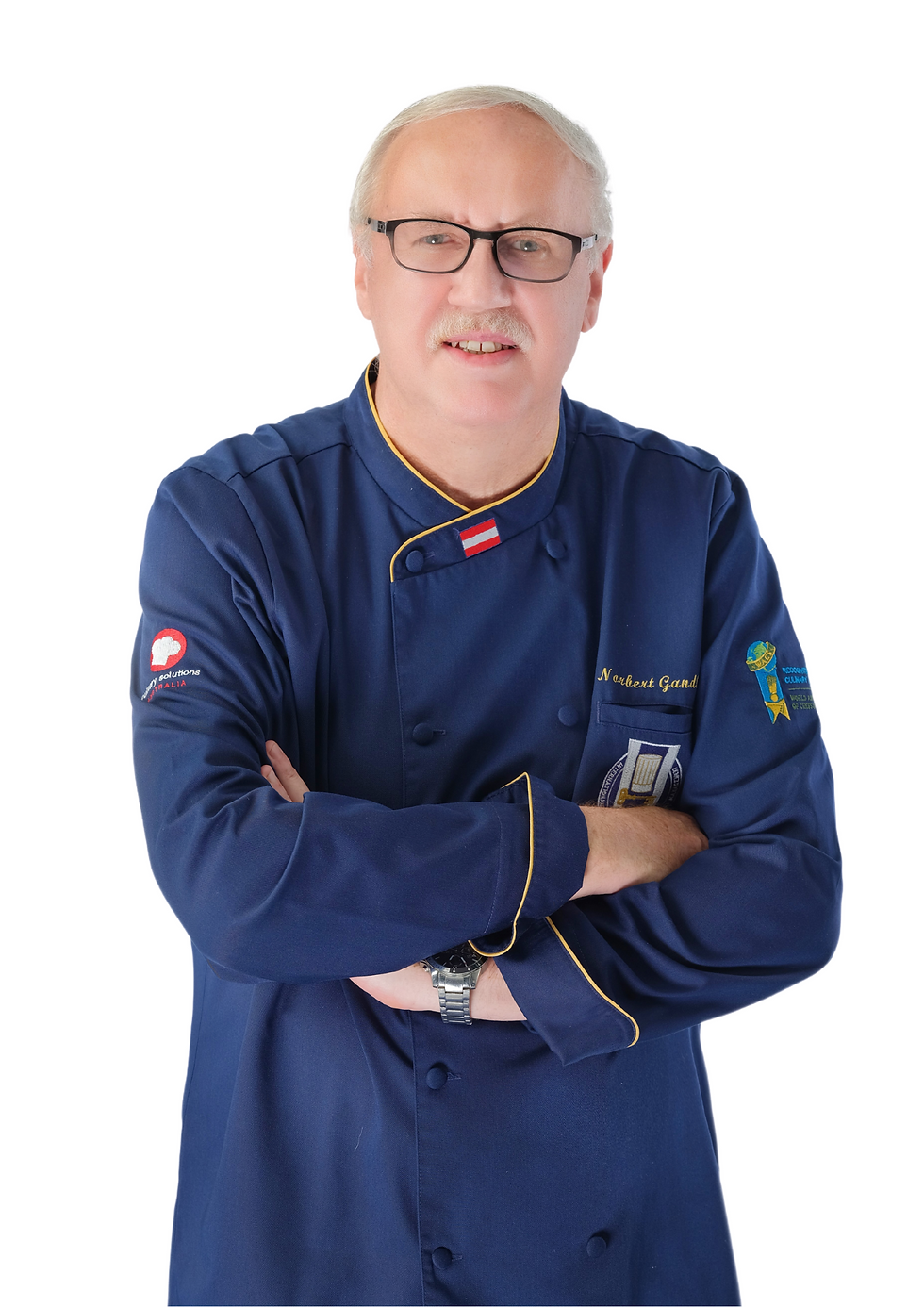ISCAHM Chef Norbert Gandler on the Importance of Experience and Classical Cooking in Culinary Arts
- Chelsea Victoria Jeffery
- Feb 6
- 9 min read

Becoming a successful chef requires hard work, consistency, integrity, and passion, precisely the qualities that Chef Norbert Gandler, Founder and Director of the International School of Culinary Arts and Hotel Management (ISCAHM), embodies and inspires his students with.
Having worked in 9 countries all around the world since 1977, including as a Chef de Partie in a Michelin Star restaurant, opening F&B outlets in five-star hotels, being Captain and Team Leader of the Philippine National Team in the Salon Culinaire, Singapore for 10 years with several Silver Medals in his belt and being the Team Leader for Mandarin Oriental Manila, Chefs on Parade Overall Champion for nine years, Chef Norbert definitely has a wealth of culinary experience, blended with the myriad of complexities and triumphs that every chef face.
And it is from his enriching exchange of experiences that our featured chef from Austria discovered his life’s purpose as a teacher of Culinary Arts, eventually establishing one of the first culinary schools in the Philippines in 2003.
Thus, amid the spacious, clean, and well-lit classroom of ISCAHM in Quezon City, Discovering Hospitality had the privilege and honor to uncover Chef Norbert’s culinary journey, which is ultimately driven to impart his knowledge to aspiring chefs, emphasizing classical cooking as the basis of a successful cuisine.
Could you please tell us what inspired you to open up ISCHAM?
I've been working in many places around the world. Before I came to the Philippines, I had been working with a lot of Filipino chefs, and for us, they were always the best workers. When I started working in the Philippines, I realized how hungry the people were to learn, but I also noticed there's a difference between us in Europe and the Philippines; we have official training to become a chef, like every profession; you go to school, you work in a restaurant or hotel, this did not exist here.
When I worked at the Mandarin for the second time, I had the idea, along with a Swiss fellow, Mr. Hansjorg Schallenberg, to open a school. That was our dream, and that was when we worked at Shangri-La Makati. It took us another 10 years, but we finally opened a school.
For me, it was always clear that the reason why I'm in the Philippines is to share my knowledge, my experience, to teach chefs, and of course, teaching it in the school is even more exciting. I'm very happy to share all my knowledge and experience.
What about Aubergine (Restaurant)? You also opened up Aubergine, right? What was the secret to that success?
Well, there's no secret. Besides opening a school, I was also looking into having a little bit of regular working time, so I decided to step out of the hotel or restaurant. Somehow, after two or three years of the school, we got this idea. “Why don't we open a restaurant? ‘Might be good for the school.” and yes, it was very nice, but of course, I put myself in a situation where I didn't have to work only for the school. I had to go back to work in a restaurant, and that was actually not the idea, but the restaurant was very successful. I think it was just too much of a workload. We had a lot of students, and we said that school was undoubtedly our priority.
Were your students also part of Aubergine?
Yes, but if you have a lot of students—we had up to 250 students—you cannot have them all do internships there, so only some of them did. Obviously, those who trained in Aubergine turned out very strong because the students had to do a two-month internship, but accommodating everybody was impossible.
Want to read more?
Subscribe to discoveringhospitality.com to keep reading this exclusive post.
